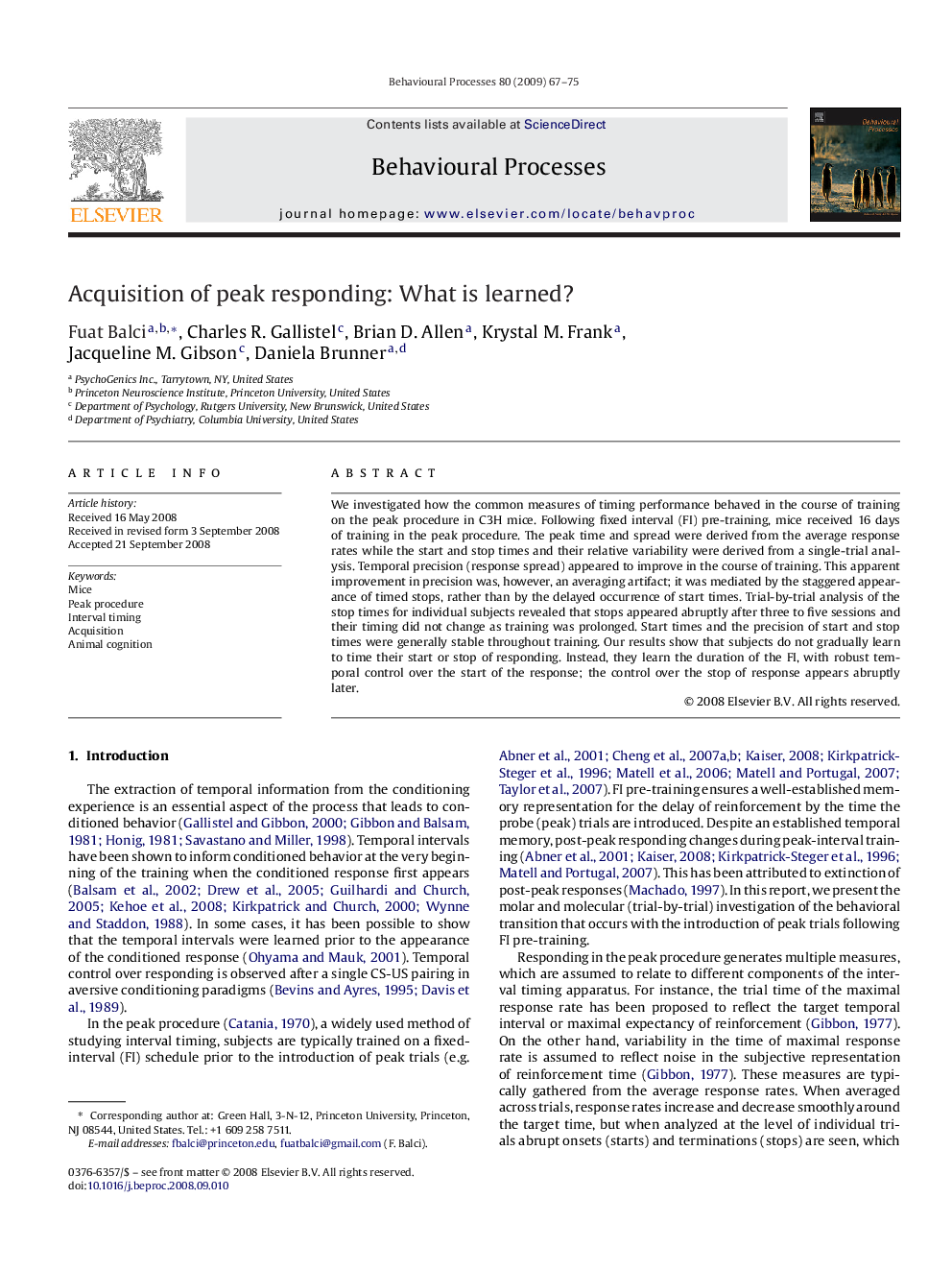| Article ID | Journal | Published Year | Pages | File Type |
|---|---|---|---|---|
| 2427576 | Behavioural Processes | 2009 | 9 Pages |
We investigated how the common measures of timing performance behaved in the course of training on the peak procedure in C3H mice. Following fixed interval (FI) pre-training, mice received 16 days of training in the peak procedure. The peak time and spread were derived from the average response rates while the start and stop times and their relative variability were derived from a single-trial analysis. Temporal precision (response spread) appeared to improve in the course of training. This apparent improvement in precision was, however, an averaging artifact; it was mediated by the staggered appearance of timed stops, rather than by the delayed occurrence of start times. Trial-by-trial analysis of the stop times for individual subjects revealed that stops appeared abruptly after three to five sessions and their timing did not change as training was prolonged. Start times and the precision of start and stop times were generally stable throughout training. Our results show that subjects do not gradually learn to time their start or stop of responding. Instead, they learn the duration of the FI, with robust temporal control over the start of the response; the control over the stop of response appears abruptly later.
